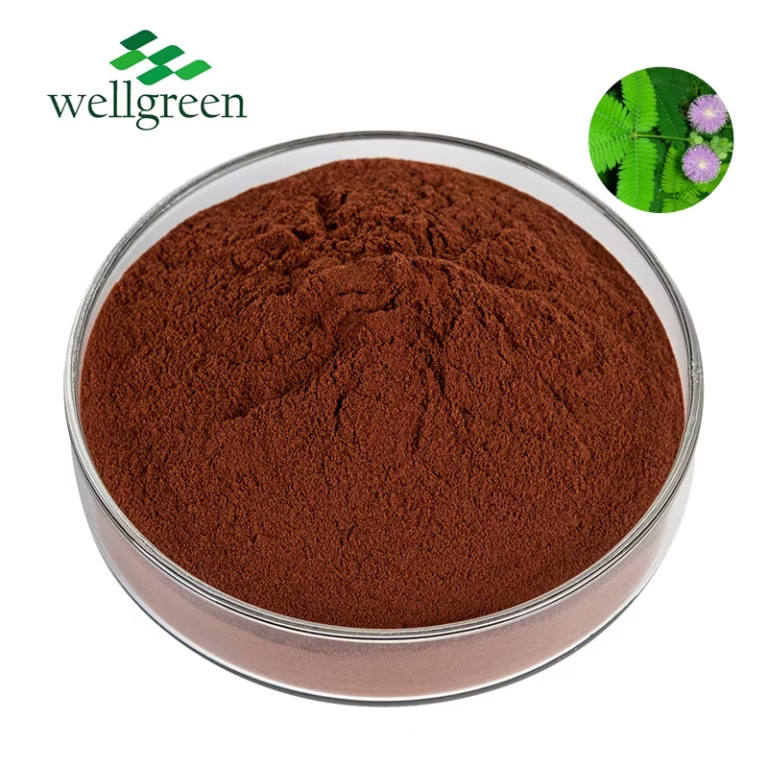
The bark of Mimosa tenuiflora, commonly known as quebracho blanco, have been employed for centuries in traditional medicine across South America.
Ethnobotanical studies demonstrate the effectiveness of M. tenuiflora preparations in treating a wide range of ailments, including infections.
Indigenous practitioners employ the extract in multiple forms such as teas to treat conditions.
Some key properties of M. tenuiflora include antimicrobial activity, and it is also believed to possess sedative properties.
Comprehensive Profiling of Mimosa tenuiflora Root Bark Extracts
This study focuses on investigating the phytochemical composition of Mimosa tenuiflora root bark extracts. The extraction methods employed involved diverse solvents, including methanol. The resultant extracts were then subjected to a battery of analytical tools such as gas chromatography-mass spectrometry more info (GC-MS) to identify the predominant phytochemical constituents. Preliminary results reveal the presence of a range of secondary metabolites, including flavonoids, which are known for their therapeutic properties. This comprehensive phytochemical analysis aims to provide valuable insights into the efficacy of Mimosa tenuiflora root bark as a source of medicinal remedies.
Historic Uses and Potential Medicinal Benefits of M. tenuiflora Root Bark
M. tenuiflora, a tree renowned for its remarkable root bark, has been utilized in traditional medicinal practices for epochs. Indigenous tribes have long acknowledged the healing properties of this powerful ingredient. The root bark is customarily extracted and consumed to address a range of ailments, including digestive issues.
Contemporary research is beginning to explore the promise of M. tenuiflora root bark in delivering medicinal benefits. Studies have revealed that certain elements present in the bark may possess antibacterial properties, influencing its potential to combat a wide array of diseases. Moreover, preliminary research suggests that M. tenuiflora root bark may also possess cognitive-enhancing effects, though more comprehensive studies are essential to substantiate these findings.
Pharmacological Activity of Mimosa tenuiflora: A Review of Root Bark Studies
Mimosa tenuiflora, commonly known the jurema tree, has a profound history of folk medicinal practice in South America. The root bark of this species is particularly valued for its diverse bioactive properties. Numerous researches have examined the potential effects of M. tenuiflora root bark, revealing a range of constituents with promising biological potency.
- One domain of particular focus is the immunomodulatory capability of M. tenuiflora root bark extracts.
- Initial evidence suggests that these formulations may regulate the immune response, potentially providing relief from multiple inflammatory ailments.
- Moreover, studies have indicated that M. tenuiflora root bark may possess cellular protective attributes, which could play a role to human health by counteracting oxidative injury.
The diverse nature of M. tenuiflora root bark composition and its potential for therapeutic treatments warrant further research. As research advances, a more comprehensive understanding of the pharmacological effects of M. tenuiflora root bark may emerge, potentially leading to the development of novel and effective medicinal interventions.
Isolation and Analysis of Pharmaceutically Active Substances from *M. tenuiflora* Root Bark
This research focuses on the procurement of medicinal substances from the root bark of *M. tenuiflora*. Multiple extraction methods, such as aqueous solutions, will be employed to purify a variety of extracts. The characterization of these extracts will involve methods like chromatography and structure elucidation. The therapeutic effects of the isolated substances will also be investigated using in vitro systems.
This project seeks to identify and characterize promising molecules from *M. tenuiflora* root bark with potential applications in healthcare.
Examining the Anti-inflammatory and Antioxidant Properties of Mimosa tenuiflora Root Bark
Mimosa tenuiflora, commonly known as the Horse tree, is a shrub native to tropical regions. Recent research has focused on its {potentialapplications for human health, particularly concerning its immunomodulatory and free radical scavenging properties. The root bark of Mimosa tenuiflora is a rich reservoir of bioactive constituents such as phenols, which have been shown to exert potent effects against oxidative stress.
- Studies have demonstrated that extracts from Mimosa tenuiflora root bark can potentally reduce the production of inflammatory molecules in both *in vitro* and *in vivo* models.
- Moreover, these extracts have exhibited notable scavenging effects by eliminating harmful free radicals, protecting cells from damage.
These findings suggest that Mimosa tenuiflora root bark holds promise as a {naturalsupplement for various inflammatory and oxidative stress-related conditions. However, further research is needed to fully elucidate its mechanisms of action and optimize its therapeutic applications.
